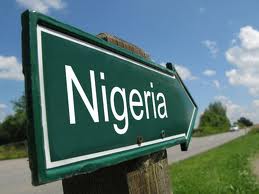 What is Democracy? Some often ask. Especially those who by virtue of what they currently face, its meaning becomes quite elusive. Is it simply an end to the military regime? Or is it a new form of foreign ruler-ship? Is the laws of a democratic state different from the usual Fatwa’s issued by mufti’s under emirs and sultans? Is decision making process in a Democratic environment different from the ‘sittings’ of clans in the ancient Ibo communities? Or as popularly opined, is democracy simply a system of government?
What is Democracy? Some often ask. Especially those who by virtue of what they currently face, its meaning becomes quite elusive. Is it simply an end to the military regime? Or is it a new form of foreign ruler-ship? Is the laws of a democratic state different from the usual Fatwa’s issued by mufti’s under emirs and sultans? Is decision making process in a Democratic environment different from the ‘sittings’ of clans in the ancient Ibo communities? Or as popularly opined, is democracy simply a system of government?
The questions as asked by indegenes of Zaki Biam in Benue state Nigeria, and the youths of Odi, Bayelsa State in south-south Nigeria, are the same being asked by the typical Kanuri man facing insurgency in Maiduguri. What is Democracy? Is it about unchecked violence and limitless bloodshed?
Around the world, concepts and constructions of democracy are under renewed observation. In Iraq, Fallujah is bombed in the name of making the country ready for democracy; in Nepal, protesters are in the streets demanding democracy; in Indonesia, the Ukraine and the United States, voters and observers are often gripped in debates about electoral democracy; in Egypt, Libya and other global forums, streets are occupied by those demanding more democracy in global processes; in small villages and neighborhoods, grassroots groups are claiming their places in local democratic spaces.
In Nigeria from complex cases of unpopular government policies and financial frauds, to indictments of political office holders, appointment terminations, kidnappings, assassinations, extra-judicial killings and large scale terrorism. Not to mention, bombings and statements of cessation. All these bring the question of democracy to light.
The answers to these questions will not come from any single individual in Nigeria, nor would it come from Imams, Pastor’s, or traditional spiritualists. It will not come from the future leaders, currently represented by millions of jobless youths in the country, or the thousands more living in organized slavery in the Diaspora. It will never come from the so-called leaders who got us here in the first place
Like all great questions, perhaps the answer is pretty simple. Perhaps, just perhaps, Democracy is what Nigerians want Democracy to be. That way we can identify if it is to serve as a quick fix to the nations problems, or a system of value recognition that develops over time.
When we make comparison to functioning democracies of the world, we too often forget that these countries took years and still are working towards the better function of their democracy. It is not a perfect system that solves all problems. It is philosophy, that once shared leads people towards mutual understading of rights. Outstanding as America remains, a black president in the white house still remains a phenomena.
Democracy does not mean that everyone will be happy, or that everything will function perfectly. It does not guarantee the best of leaders, or the best of outcomes in all elections. The process of democracy does not rule out interests or sentiments, nor does it stand in the way of government monopoly of disfranchisement. The value system however, creates a fertile ground for the common understanding of fairness, equality, and justice and these ingredients are the spice that promote real development.
We no doubt have a steadily growing democracy, and it must go through several stages. It is a constantly evolving concept. To undo all that has been done now in the faulty argument that we want a more democratic environment will not create a solution, it will simply set us back. A revolution has already began, social media has enabled people to question their government to reach out to the world and say ‘this is what is happening to us’
Nigerians now play with budget figures, we now have yardsticks of comparison, and we can identify the tools of good governance and the ills of corruption. All that remains is sharing the democratic culture that all Nigerians irrespective of where they come from, are one. That we have equal rights and entitlements and that we share a common destiny. Let us work to strengthen this. It may be slow, and the outcomes may be doubtful, but with shared goals of development, without wishful thinking, we can understand our differences and move the nation to the greatest heights.
Tahir Sherriff writes from Abuja, and can be reached on tahirsherriff@yahoo.com
Leave a comment